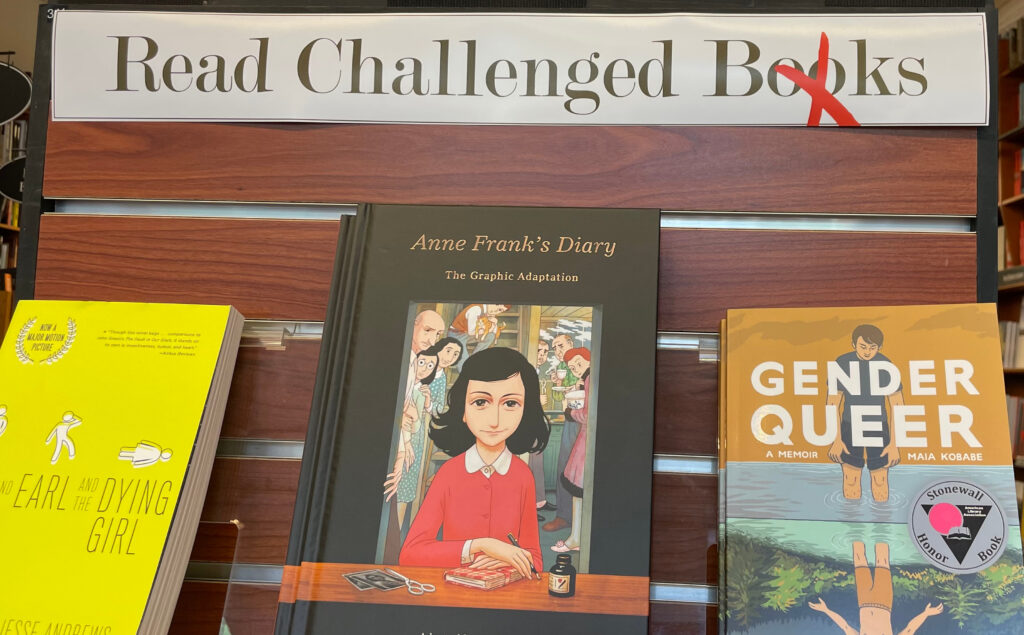By Jeffrey A. Roberts
CFOIC Executive Director
The Gunnison County Library District has joined the Crested Butte News and the Colorado Freedom of Information Coalition in asking the Colorado Court of Appeals to overturn a judge’s ruling that shields the identities of people who want library books banned or reclassified.
“It does not make practical or legal sense to define a person seeking to remove, move, or otherwise limit access to a book or public library resource as a ‘user’ of the public library, as the Requestors are actually attempting to hinder others’ ‘use’ of the resource,” says a brief filed for district executive director Andrew Brookhart by attorney Michael O’Loughlin.

“A person simply does not, and should not, have anonymity protections when they are trying to influence public policy and the decisions and resources that may be offered to the public at large by a tax funded entity, like a public library,” the brief adds.
Last May, Gunnison County District Court Judge J. Steven Patrick decided that the Colorado Open Records Act (CORA) and the state’s library-user privacy law require the library district to disclose “Request to Reconsider Materials” forms but with requesters’ names and other identifying information redacted.
The ruling stemmed from CORA requests made by Crested Butte News editor Mark Reaman for all request-for-reconsideration forms received by the library district in early 2022. He asked for the records after Crested Butte resident Rebecca White submitted a form calling for the removal or reclassification of Gender Queer: A Memoir by Maia Kobabe. White described the book as “pornographic,” according to the Crested Butte News, and later unsuccessfully sought criminal charges against Brookhart for allegedly violating the library user privacy law.
The library district board did not move the book from the young-adult section following a well-attended public meeting, but Brookhart sought a judicial clarification of his obligations under CORA after receiving several additional requests for reconsideration.
Like a friend-of-the-court brief filed by CFOIC in November, the library district’s brief notes that CORA exceptions must be narrowly construed, as required by legal precedents.
CORA and the library user statute prohibit public libraries from disclosing any record or other information “that identifies a person as having requested or obtained specific materials or service or as otherwise having used the library.”
Patrick in his ruling concluded that “user” in the statute “is not limited to someone who reads material in the library, or, checks out material.”
But “in the context of a public library, ‘use’ may be thought of as the consumption of books and other resources or materials in the pursuit of searching out and obtaining information for one’s own purposes,” the library district’s brief says. Someone who requests the removal of a book “is clearly and unambiguously not ‘one who uses’ or one that ‘has used’ the library.”
The brief also argues that public disclosure of request-for-reconsideration forms, including information identifying the requester, is necessary for the “reasonable operation of the library.” The library user law permits disclosure of library records for that purpose.
“It is … necessary to disclose the Requestors’ identity to keep the public informed of those attempting to limit or influence the books and materials that are publicly available, and of the responses of the public entity to the same,” wrote O’Loughlin, representing Brookhart and the district.
“Ultimately, the Library District is run using public dollars by a Board that must operate in public view. Transparency of the Library District, including what goes into its policy decisions and the books, materials and other resources that make up its collections, along with those attempting to influence those decisions and collections, are matters of public concern.”
The library district further argues that Patrick’s decision wrongly relied on the Colorado Supreme Court’s 2002 ruling in Tattered Cover v. City of Thornton, which recognized a First Amendment and state constitutional right to purchase books anonymously.
Follow the Colorado Freedom of Information Coalition on Twitter @CoFOIC. Like CFOIC’s Facebook page. Do you appreciate the information and resources provided by CFOIC? Please consider making a tax-deductible donation.




